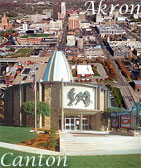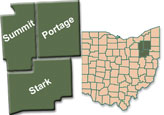

|

|

|

|

|

|

|

|

|

|


|
 |
METRO Fixed Route Vehicles Equipment Packages |
The following equipment packages are associated with the "METRO Fixed Route Vehicles" element. Select the "Details" icon to see the detailed process specifications that support each equipment package, or consult the National ITS Architecture web site for more information.
On-board Fixed Route Schedule Management
![]()
This Equipment package provides the capabilities for automated planning and scheduling, by collecting data for schedule generation. Capability shall also be provided to automatically determine optimum scenarios for schedule adjustment. This Equipment package also supports the capability for two-way voice communication between the transit vehicle driver and a facility, two-way data communication between the transit vehicles and a facility, on-board safety sensor data to be transmitted from the transit vehicles to a facility, and data transmission from individual facilities to a central facility for processing/analysis if desired.
This Equipment package provides the capability to use transit vehicle mileage data to automatically generate preventative maintenance schedules for each specific bus by utilizing vehicle tracking data and storing with a trip computer. It also provides the capability for real-time condition monitoring on board the vehicle, and transmission of this information via two-way communication to the management center.
On-board Transit Fare and Load Management
![]()
This Equipment package provides the capability to collect data required to determine accurate ridership levels and implement variable and flexible fare structures. Support shall be provided for the traveler for use of a fare medium for all applicable surface transportation services, to pay without stopping, have payment media automatically identified as void and/or invalid and eligibility verified, and allow for third party payment. In addition, capability to provide expansion into other uses for payment medium such as retail and telephone and for off-line billing for fares paid by agencies shall be supported. This Equipment package also supports the capability for two-way voice communication between the transit vehicle driver and a facility, two-way data communication between the transit vehicles and a facility, sensor data to be transmitted from the transit vehicles to a facility, and data transmission from individual facilities to a central facility for processing/analysis if desired. These capabilities require integration with an existing On-board Trip Monitoring Equipment package.
On-board Transit Information Services
![]()
The Equipment package furnishes enroute transit users with real-time travel-related information. Current information that can be provided to transit users includes transit routes, schedules, transfer options, fares, real-time schedule adherence, current incidents, weather conditions, non-motorized transportation services, and special events are provided. In addition to tailored information for individual transit users, this equipment package also supports general annunciation and/or display of general schedule information, imminent arrival information, and other information of general interest to transit users.
This Equipment package provides the capability to monitor the safety of transit vehicles using on-board safety sensors, processors and communications from the prerequisite On-board Trip Monitoring Equipment package.
On-board Transit Signal Priority
![]()
This Equipment package provides the capability for transit vehicles to request signal priority through short range communication directly with traffic control equipment at the roadside.
On-board Transit Trip Monitoring
![]()
This Equipment package provides the capabilities to support fleet management with automatic vehicle location and automated mileage and fuel reporting and auditing. This package may also record other special events resulting from communication with roadside equipment. This includes only the equipment on board the vehicle to support this function including the vehicle location devices such as GPS equipment, communication interfaces, a processor to record trip length, and the sensors/actuators/interfaces necessary to record mileage and fuel usage.
 Web Spinner Technology.
Web Spinner Technology.